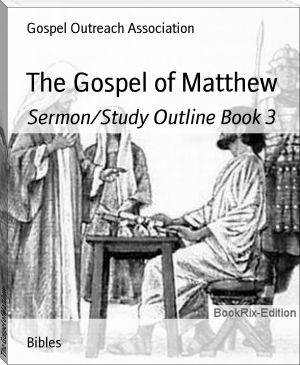The Gospel According to Matthew THE REAL TRUTH by JACOB GEORGE (robert munsch read aloud TXT) 📕

- Author: JACOB GEORGE
Book online «The Gospel According to Matthew THE REAL TRUTH by JACOB GEORGE (robert munsch read aloud TXT) 📕». Author JACOB GEORGE
When I wrote “5000 Praises - I Will Praise Thee O LORD”, I thought of it as an opportunity to encourage Christians to praise the Lord instead of grumbling. Many of my Friends reported remarkable changes in their lives as they practiced praising God. But over the years I would like that the number of people who will read this “5000 Praises - I Will Praise Thee O LORD” will accepted Jesus as their Lord and Savior.
This Book is Written by Jacob George Gunde is dedicated to my LORD and Saviour Jesus Christ. I love Him.My aim is all the people in world must praise my Master.
This Book is Written by Jacob George Gunde is dedicated to my LORD and Saviour Jesus Christ. I love Him.My aim is all the people in world must praise my Master.
Free e-book «The Gospel According to Matthew THE REAL TRUTH by JACOB GEORGE (robert munsch read aloud TXT) 📕» - read online now
Similar e-books:





Comments (0)